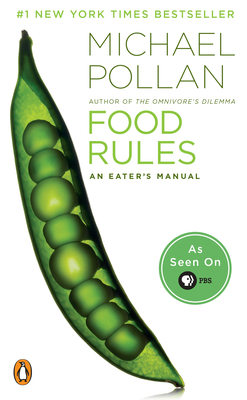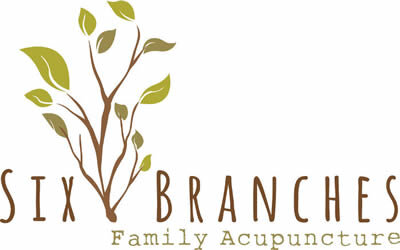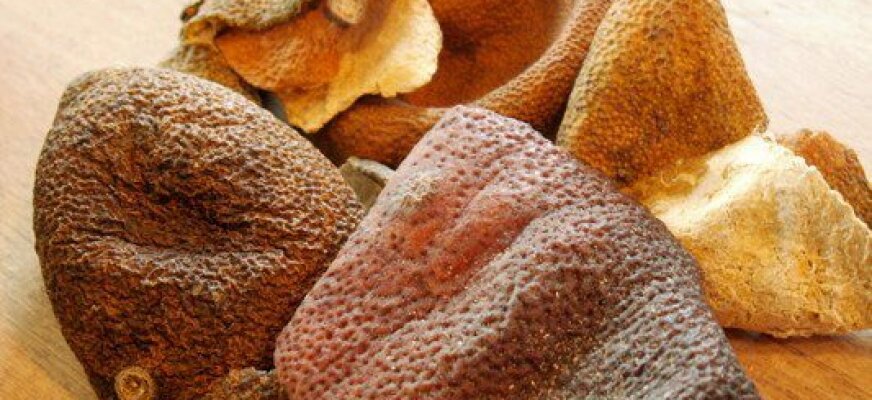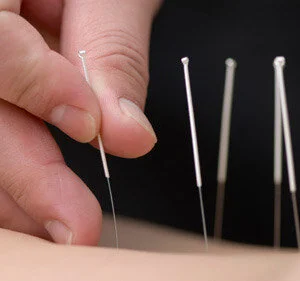When you go to an acupuncturist, they will inevitably ask you if you have any food cravings. The idea is not to shame you or find out about your "guilty pleasures". In Chinese medicine, the nature of your cravings is diagnostic - it helps us understand where your imbalances are.
Read moreBooks from the library: The China Study
Since we've all just recovered from the Thanksgiving Turkey, only to gear up for the Christmas Goose/Chanukah brisket, I thought I'd share this very important book with you.
The China Study tells the story of T. Colin Campbell, PhD, a prominent researcher in nutrition science who, over 30+ years of studying the effects of diet on cancer, has come to the conclusion that eating animal-based protein (meat, eggs, and dairy) is at the root of the "diseases of affluence" that afflict our society.
His work began in the 1970's by studying carcinogenic toxins, but he quickly began to discover the importance of diet in the development of cancer. Many people go to great lengths to avoid toxins in their food - buying organic, avoiding nitrates in meat, or styrofoam or BPA in food packaging. Dr. Campbell's research showed that more important than the presence of toxins is the presence of excess animal-based protein, which actually enables the damaging effects of toxins to develop into full-blown cancer. These findings led Dr. Campbell to get funding for the China Study, which was a broad-scale study that gathered information on the eating habits and health outcomes of people in different parts of rural China. The book goes into all of these findings and outcomes in detail, so I won't summarize all the evidence here, but Dr. Campbell makes a very strong case for eating a plant-based diet. He also uses the last part of the book to detail his experiences and frustrations with the Industry of food and food science.
Dr. Campbell is advocating for a plant-based, whole-foods way of eating. He is not talking about being vegan for the sake of the animals or for its lower environmental impact. He is not talking about being a vegetarian who eats a lot of refined carbohydrates. He does suggest eliminating all animal-based protein as a recipe for health and longevity, but he doesn't find it all that important if your vegetable soup might have a chicken stock, or your whole wheat bread has a small amount of dairy in it. According to Dr. Campbell, it's more important that a) you don't have a burger or pour a cup of milk in your cereal everyday and b) you are eating whole foods: whole grains, legumes, vegetables and fruits.
Now, the times when I have walked away from dairy have been some of the healthiest times in my life. However, I was once a vegetarian and I have to say, forsaking meat entirely didn't work for me. There are just certain times when I crave meat. Chinese Medicine, also, doesn't advocate for everyone to give up meat entirely. In TCM, meat has a warming, yang energy. For people with certain imbalances, eating meat is actually seen as therapeutic. But like a therapeutic drug, even people with those imbalances don't need it everyday. When consumed in excess, that warming, yang energy could also fuel some undesirable processes and create imbalances.
Let's remember that TCM theory developed at a time when people didn't have access to meat on a regular basis. People at that time were often undernourished and working physically all day long. Until fairly recently, no one in China was eating a lot of meat on a regular basis, certainly not daily as we do in North America. As The China Study discovered, as meat consumption in China has risen, so have the rates of all the major diseases we see in the US today, such as cancer, heart disease, and diabetes. The fact is that most omnivorous people in North America are eating way too much meat, eggs, and dairy.
I prefer a flexible approach to eating that takes my cravings into account, but The China Study makes a very compelling case for cutting meat and dairy out of most of my meals and it's a must-read if you're interested in health. I'm reminded of a mantra from another great book, Michael Pollen's Food Rules: an Eater's Manual:

*Eat food (real, whole, not processed)
*Not too much
*Mostly plants
Have other books you'd like to suggest for our bookshelf? Feel free to leave a comment here!
Acupuncture is Great for Children!
People are often surprised when they hear that acupuncture is great for children. Acupuncture, pediatric massage and herbal medicine are practical approaches to children’s and teens’ health care that focus on treatment of symptoms in addition to resolving the root causes of an illness. Many parents like to use acupuncture and massage first because it is less invasive and doesn't have unwanted side effects. Parents learn about ways to help their children stay healthy at home with pediatric massage and dietary approaches, and kids learn more about how their bodies work and heal.Pediatric acupuncture is a great way to address a range of conditions such as:
Acne
ADD/ADHD
Allergies
Anxiety
Asthma
Chronic Colds
Cough
Constipation
Diarrhea
Ear and sinus infections
Eczema
Low immunity
Menstrual cramps/PMS (teens)
Pain of all kinds
Vaccine preparation or recovery
Do You Really Use Needles With Children?
We can use needles with children who agree to try them, but we call them "taps" With small children it is effective to just tap in a small needle and then remove it, so "taps" is an easily understood name. We only use very small, very thin needles, and only if the child agrees to try "taps". Once they've tried taps, most children are hooked! For children who don't want to try taps, we can use massage and other tools to activate the acupuncture points.
Is Acupuncture Safe For Children?
Yes! Researchers from University of Alberta published a study in the journal Pediatrics that looked at data from around the world, collected over a span of 60 years. They find that acupuncture is safe for children, concluding that most of the few adverse effects that were seen were caused by sub-standard practices. "Our results support those from adult studies, which have found that acupuncture is safe when performed by appropriately trained practitioners."
New Screening Guidelines for Lung Cancer + TCM can help!
If you know anyone who has battled lung cancer, you know that one of the biggest obstacles to survival is the fact that people are often diagnosed in later stages of the cancer. One reason for this trend is that there have not been widely recommended, reliable, screening procedures for catching the cancer earlier on in its development. That changed this month, as the National Comprehensive Cancer Network (NCCN) published guidelines recommending the use of low-dose computed tomography (LD-CT) screening for select individuals at high risk for the disease. This new guideline is a category 1 recommendation, making it more strongly recommended than mammography or colonoscopy for high-risk individuals.
For the target group of heavy smokers 55 to 74 years of age, or anyone who has smoked 1 pack a day for 30 years (or 2 packs/day for 15 years), regular, annual LD-CT scans are recommended. Medscape quotes Mark Kris, from the Memorial Sloan-Kettering Cancer Center, stating, "Finally we have a screening test that meets that gold standard and has a substantial opportunity to decrease the death rate for lung cancer."
When it comes to treatment for lung cancer, the same Memorial Sloan-Kettering Cancer Center finds that acupuncture can be very useful for treating the symptoms* of the disease as well as the effects of chemotherapy and radiation. They state, "Acupuncture reduces many symptoms experienced by cancer patients in all stages of treatment, including [shortness of breath], fatigue, hot flashes, sexual dysfunction, urinary problems, osteoarthritis, [nerve pain], [dry mouth], and more. Most relevant to patients in the ICU, acupuncture can relieve anxiety, depression, stress, and pain, and it can reduce the amount of opioids required to maintain patient comfort."
Western MDs are often hesitant to use TCM herbal medicine and vitamin therapy during cancer treatment because many drug-herb interactions are unknown. There is preliminary evidence, however, that herbal medicine and vitamin supplementation can improve outcomes for people with lung cancer. A 10-year retrospective lung cancer survival study published this fall by the Pine Street Foundation, found that long-term herbal and vitamin therapy, combined with conventional cancer therapy, reduced stage IIIA deaths by 46%, stage IIIB by 62%, and stage IV by 69% compared with conventional therapy alone. Promising news from the folks at Pine Street!*
Just to reiterate, TCM is not used to "cure" cancer, but is used to treat symptoms and improve quality of life as people go through treatment.
Laughter Is Good For The Heart ... but you knew That
One of the main tenets of Chinese Medicine is that our emotions play a role in our health and physical functioning. In the last few decades, Western science has begun to understand this idea in a number of ways, whether it's shown how stress affects the body, how anger and depression keep people from recovering faster, or that laughter is good for you.
In TCM, the emotion that belongs to the Heart is Joy. We all know that Joy can help to heal the heart. (On the other side of the spectrum, too much joy (ie. mania) can also injure the heart fluids.) In the Western medical world, Michael Miller, a researcher at the University of Baltimore Medical Center, has researched joyful experiences, and how they help the heart function better. In one study, Dr. Miller found that people with heart disease were less likely to find humor in situations, to recognize humor, or use it to get out of uncomfortable situations. They generally laughed less, even in positive situations and they displayed more anger and hostility. In another study, he looked at the effects of listening to (self-selected) joyful music vs. anxiety-producing music. He found that listening to anxiety-producing music constricted the blood vessels (making the heart work harder to circulate the blood and raising blood pressure), while listening to joyful music opened the blood vessels (easing the load on the heart muscle and lowering blood pressure).
Now, Dr. Miller has reported on another study, yet to be published, that shows that laughter has similar effects on our blood vessels.
"We want to maintain good vascular health, and we do that by maintaining a good diet and good regular physical activity, but it turns out that emotions also play an important role here," Miller recently told the media during a morning press conference at the European Society of Cardiology Congress (2011).
These researchers promoted laughter by showing movies or segments from Saturday Night Live to really make people laugh. They also screened intense segments of dramatic movies, such as Saving Private Ryan. After each movie, endothelial function was measured in the blood vessels. After watching the scene from Saving Private Ryan, blood vessels constricted by as much as 30% to 50%, whereas vasodilation occurred when investigators measured vascular function in subjects watching the comedies. They also observed that vasoconstriction and vasodilation can occur quickly, with the funny movies reversing blood-vessel contraction that occurred after watching the stressful D-Day scene. They found that the effects of laughing for 10-15 minutes last in the body for up to an hour and can have similar effects to exercise for heart health.
Maybe this all seems obvious. Even if TCM has been saying this for 2,000 years, the more Western Medicine recognizes the ways that emotions affect our health, the better!
(Photo credit: Michael Kuhn)
Good Vibrations
How does acupuncture work? Yes, acupuncture needles manipulate qi flowing in meridians to balance the body, but what does that mean in our modern physiological understanding of the body? This is a question that the scientific community has not been able to answer definitively. There are a number of people researching various aspects of the question. Previously on this blog, I hypothesized that the concept of Qi is really a metaphor for the chemical and electrical processes in the body. If you've ever wondered how acupuncture works, you're not alone.
Well, an important study was published in July by the Europoean Journal of Physiology which reports on that very topic. The study, performed by electrical engineers at Columbia and medical researchers in Hong Kong, examined what happens on a cellular level when an acupuncture needle is inserted into an acupuncture point. They found that when bodily tissue is pierced by a needle while being manipulated, slow-moving acoustic waves are sent into the muscles. These waves then trigger inter-cellular calcium flow. Calcium then interacts with white blood cells to produce endorphins that help alleviate symptoms such as pain and nausea.
The study also determined that the effectiveness of acupuncture depends on how accurately the needle hits the acupuncture point. The acoustic waves generated by acupuncture can travel between six and eight centimeters along the grain of pierced muscle only when the needle is inserted on an acu-point. Needles inserted into places that were not acu-points also sent acoustic waves, but the waves did not travel as far or as widely.
As with all science, since this is the first study to research this aspect of acupuncture's mechanism, we'll need to see what further research uncovers. However, these findings appear to be an important development!









